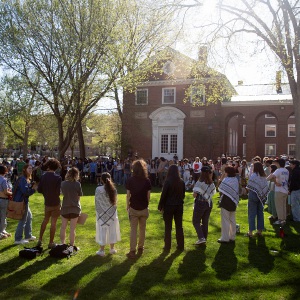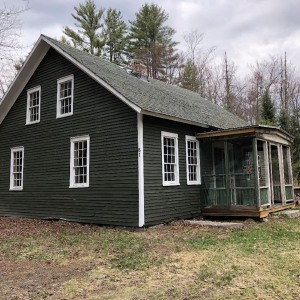Claremont may ease charging ‘special assessments’ for infrastructure repairs
| Published: 09-11-2023 8:46 PM |
CLAREMONT — The City Council on Wednesday will consider a change in the ordinance governing the use of special assessments to pay for a portion of infrastructure repairs. If approved, the change would give the city manager more control over when and where such an assessment might be employed.
At the Aug. 23 City Council meeting, City Manager Yoshi Manale said state law allows communities to impose a special assessment to property owners in an affected area to defray the cost of infrastructure projects and the law lets communities decide the parameters. Manale said to his knowledge it has never been implemented in Claremont because the requirements are “too restrictive.”
The 1977-era ordinance, as it is now written, requires either a petition signed by owners of at least two-thirds of the affected properties or a petition signed by the city manager with consent in writing from half of the property owners for the proposed special assessment. The change removes the requirement of half the property owners signing off and allows the city manager to bring a recommendation to the council on his own.
“It will make it easier for the city to implement this financial tool for infrastructure improvements,” Manale told the council.
Under the proposed change, the council would have the authority to approve or deny the request.
Affected property owners would be notified, public hearings held and the exact cost of the assessment for each property owner determined.
The formula to determine the amount of the assessment for each property owner would be presented by the Assessing Department. It could be based on property value or, in a commercial district, traffic counts.
“I think the main thing this would be used for is Washington Street,” Manale said last week. “That is a substantial cost. The city does not have that kind of money. It is a very expensive project. A special assessment to share those costs, which benefit everyone on that street, would help.”
Article continues after...
Yesterday's Most Read Articles
 Dartmouth administration faces fierce criticism over protest arrests
Dartmouth administration faces fierce criticism over protest arrests
 Three vie for two Hanover Selectboard seats
Three vie for two Hanover Selectboard seats
 A Look Back: Upper Valley dining scene changes with the times
A Look Back: Upper Valley dining scene changes with the times
 Norwich author and educator sees schools as a reflection of communities
Norwich author and educator sees schools as a reflection of communities
For Washington Street — the city’s main commercial district including Walmart, Runnings, Home Depot, Market Basket, Hannaford and several fast food chains — Manale said city officials would likely study the total vehicle count and determine what percentage enters each of the businesses to determine how much to assess property owners.
The city would still pay for most of the repair costs. He said the most recent estimates to repair the road from Broad Street to Roberts Hill is $1.4 million.
Manale said at the Aug. 23 council meeting that a paving project on a road used mostly by those living there might be a candidate for a special assessment. But Manale and councilors who backed the first reading of the ordinance change at the Aug. 23 council meeting said last week that they would oppose a special assessment to pay a portion of repairs in residential areas.
Manale said a special assessment in a mostly residential area does not make sense.
“They already are paying property taxes” (for road repairs), he said.
“Absolutely not,” Councilor Jonathon Stone said when asked about paving and sidewalk repairs in residential streets.
Stone said those repairs are the “cost of doing business,” referring to the taxes residents pay for such infrastructure repairs.
Assistant Mayor Deb Matteau, Mayor Dale Girard and Councilor Nick Koloski similarly said a special assessment for fixing streets and sidewalks in mostly residential areas is not something they would support.
“I pay enough in taxes and would not support an assessment on top of that to pave roads,” Koloski said. “I hope it would not be used in that manner.”
“From my standpoint, unless everyone on a street said this is what we would like to do (pay an assessment) I would not support it,” Girard said.
All four councilors, along with Councilors Andrew O’Hearne, William Limoges, Jim Contois and Matt Mooshian voted in favor of the first reading of an ordinance change. The second reading, and possible approval, is scheduled for this Wednesday’s council meeting. Councilor Spencer Batchelder was opposed.
Stone, who said at the council meeting the change is a “good opportunity to target specific areas for specific projects,” agreed that the only project he could think of where a special assessment could be imposed would be Washington Street.
At the Aug. 23 meeting, Matteau said she was aware of a sewer line extension in Enfield paid for through a special assessment charged to residents of a condominium complex, but would not support an assessment for residential streets.
“I don’t envision it being used that way,” Matteau said. “I would not support it.”
Manale told the council that Lebanon used the special assessment tool to have Dartmouth Hitchcock Medical Center pay a percentage of the cost for a new roundabout because it was being used mostly by DHMC employees.
Lebanon City Manager Shaun Mulholland said the DHMC assessment is the only one still on the books with the rest having expired. He said special assessments are rarely used and are usually for infrastructure for new developments.
“Probably not,” Mulholland said when asked if a special assessment would be applied to repair existing infrastructure.
The Claremont City Council meeting begins at 6:30 p.m. in City Hall.
Patrick O’Grady can be reached at pogclmt@gmail.com.

 Hanover house added to New Hampshire Register of Historic Places
Hanover house added to New Hampshire Register of Historic Places
